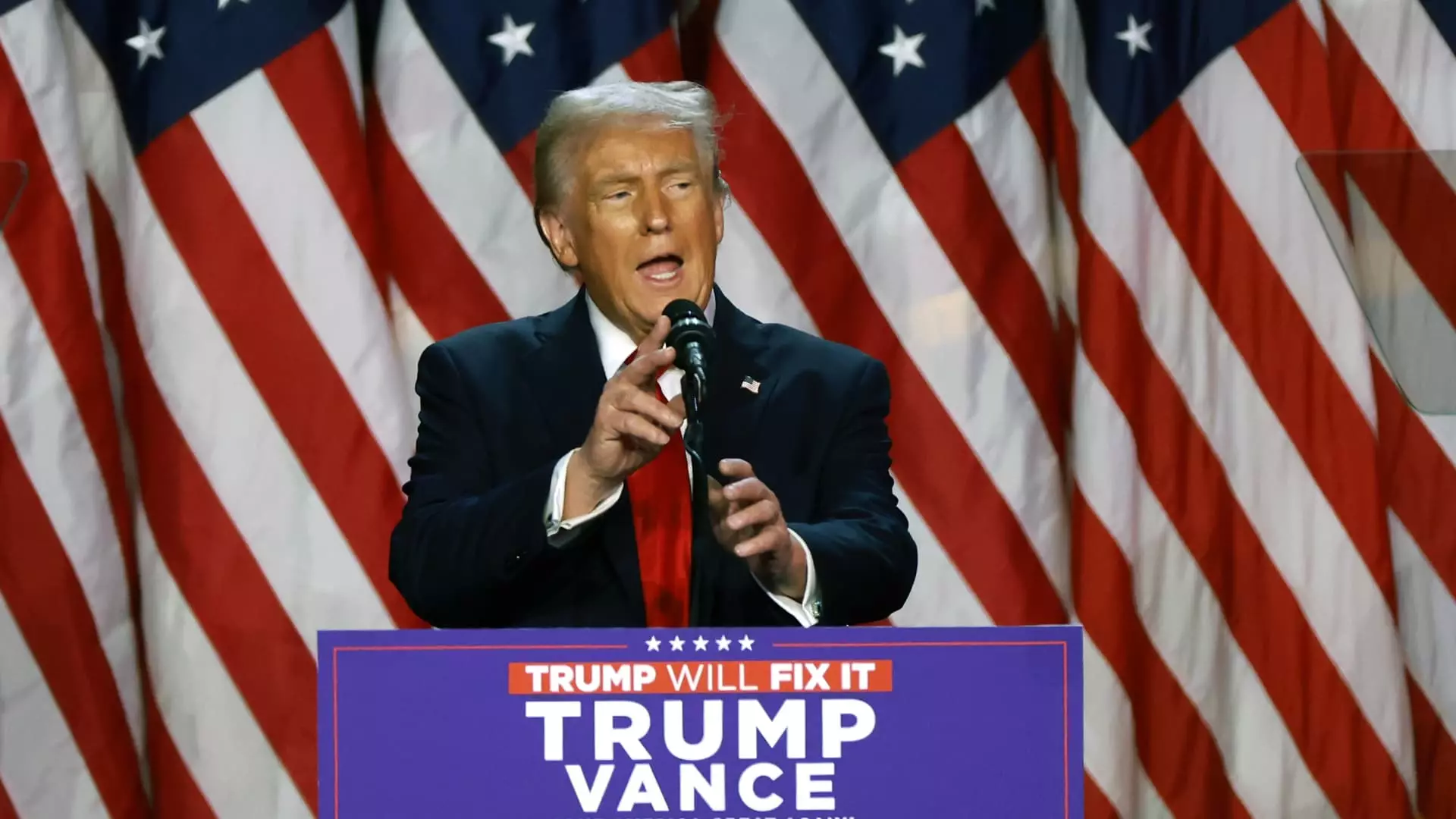The recent electoral victory by President-elect Donald Trump has been met with a sense of optimism in the stock market, marked by a significant surge in major indices such as the Dow Jones Industrial Average, S&P 500, and Nasdaq. Buoyed by the Federal Reserve’s swift interest rate cuts, the financial markets experienced their most prosperous week in a year. Yet, this enthusiastic response starkly contrasts with the unease many Americans feel about their personal finances—a phenomenon dubbed “vibecession.” With mounting evidence of this divergence, how should individuals navigate their financial strategies amid such uncertainty?
“Vibecession” encapsulates the sentiment gap between market performance and individual financial realities. While investors cheer rising stock prices, many everyday Americans grapple with financial challenges such as rising costs of living, stagnant wages, and increasing debt loads. This disconnect raises essential questions about the reliability of market trends as predictors of financial health for the average household. According to financial experts, it’s vital to bridge this gap not through speculation but by maintaining a focus on individual financial circumstances.
As we navigate the implications of a new presidential term, financial advisors emphasize the importance of sticking to a long-term financial plan rather than getting swept up in market fluctuations. Rianka Dorsainvil, a certified financial planner, advises individuals to adjust their financial strategies only when their personal circumstances or objectives change. This disciplined approach helps ensure stability during tumultuous shifts in the economic landscape, regardless of who occupies the White House.
Understanding that consumers and investors have limited power over government fiscal policies means that one’s focus should shift toward more controllable aspects of personal finance. Creating a robust individual financial framework is not just advisable; it is essential for thriving in unpredictable economic times.
Practical Steps to Enhance Financial Resilience
1. **Build Emergency Funds:** Establishing an emergency fund in a high-yield savings account is a crucial step toward financial security. Financial experts recommend setting aside three to six months’ worth of living expenses to provide peace of mind during unexpected financial setbacks. This cushion not only helps in managing emergencies but also bolsters stability when external financial conditions fluctuate.
2. **Maximize Retirement Contributions:** Individuals should assess the tax benefits associated with workplace retirement accounts, such as 401(k) plans and IRAs. Contributions to accounts with matching funds should be prioritized, as they offer an immediate return on investment. Additionally, considering other tax-advantaged options, such as Health Savings Accounts (HSAs) can provide long-term benefits. HSAs, in particular, allow funds to roll over annually, grow tax-free, and can be used for qualified medical expenses without incurring taxes.
3. **Manage and Reduce Debt:** Those grappling with credit card debt should contemplate pausing their card usage to regain control. Seeking assistance from nonprofit credit counseling services, like those offered by the National Foundation for Credit Counseling, can be pivotal in developing effective repayment strategies. Reducing debt levels not only enhances personal cash flow but also prepares individuals for potential shifts in interest rates or economic policies under a new administration.
4. **Search for Unclaimed Assets:** Many individuals may be unaware of unclaimed financial assets from past accounts. Searching for “missing money” through platforms such as missingmoney.com or local state treasurer’s offices can uncover forgotten funds that can provide a financial boost. This process is often straightforward and can yield surprising results, further augmenting one’s financial base.
5. **Focus on Fundamental Financial Practices:** Finally, it’s paramount to ground decision-making in fundamental financial principles rather than reacting to transient market trends or sensational headlines. Dorsainvil emphasizes that adopting a solid financial foundation is crucial for navigating diverse economic climates, regardless of political leadership.
In a climate where stock market euphoria can feel worlds apart from the realities faced by many households, individuals must anchor themselves in sound financial practices. The intersection of personal finance with macroeconomic factors can be intricate and daunting, yet focusing on personal agency and long-term strategies provides a route to financial resilience. By prioritizing fundamental financial actions, Americans can better position themselves to weather the storm of uncertainty inherent in today’s economic landscape, emerging more adaptable and prepared for future challenges.

